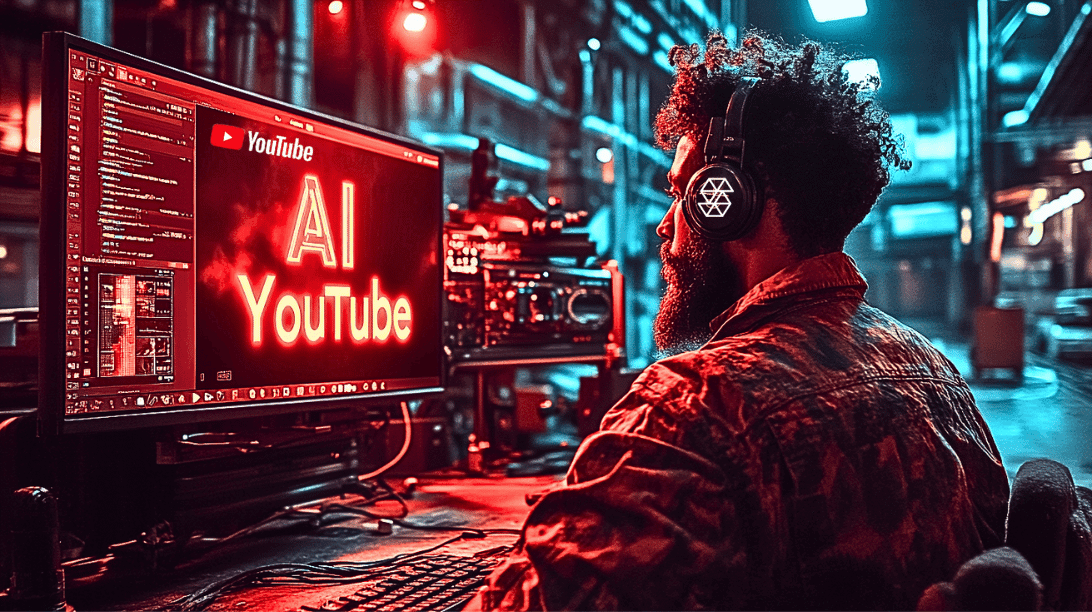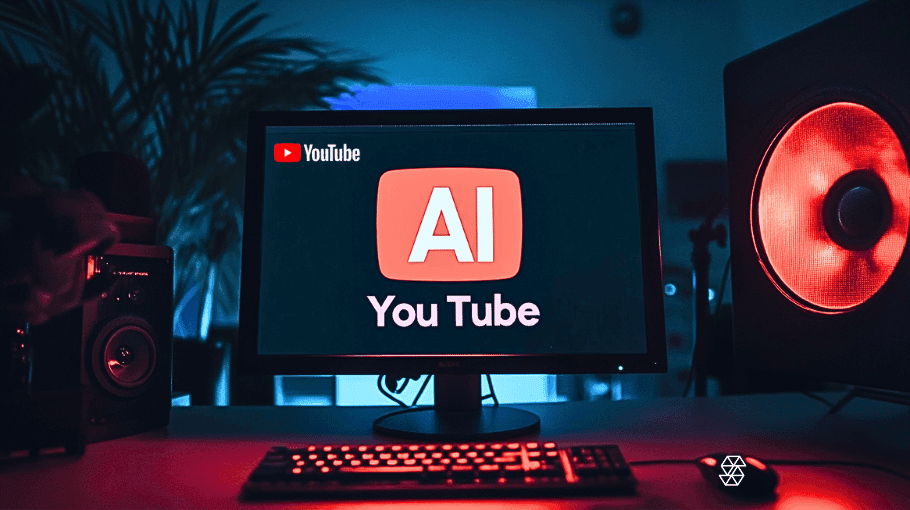10 Common Generative AI Use Cases for Enterprises
Generative AI, a subset of artificial intelligence, stands as a beacon of innovation. Traditional AI models are designed to process inputs and provide predictable outputs. In contrast, generative models are akin to the creative minds of the tech world. They produce new, unique data, offering outputs that aren’t just reactions, but innovations. In the corporate arena, this capability translates to groundbreaking solutions, products, and ideas.
Today’s business leaders face a landscape dotted with challenges and opportunities. Amidst the noise, enterprise generative AI is making waves. When paired with proprietary data, these AI models act as catalysts, unlocking immense enterprise value and paving the way for trailblazing advancements.
- Exploring Generative AI Use Cases
- 1. Custom Content Creation
- 2. Data Augmentation
- 3. Product Design and Prototyping
- 4. Drug Discovery and Healthcare Solutions
- 5. Realistic Simulation and Training
- 6. Financial Forecasting
- 7. Customer Support Automation
- 8. Bespoke Marketing Campaigns
- 9. Enhanced Data Security
- 10. Personalized E-commerce Experience
- Embracing the Transformative Potential of Generative AI
- Frequently Asked Questions (FAQs)
Exploring Generative AI Use Cases
When you peel back the layers of enterprise generative AI, you’ll find a treasure trove of use cases, each with the potential to redefine industry standards and establish new norms. The world of generative AI is vast, offering transformative opportunities across various industry sectors. As we uncover each use case, the sheer potential of this technology for enterprises becomes evident.
1. Custom Content Creation
In the digital age, the demand for fresh and relevant content is incessant. Brands are in a perpetual race to outdo competitors with richer, more personalized content experiences. Generative AI, especially tools like ChatGPT, is revolutionizing this domain. Imagine having an entire content team at your fingertips, capable of producing SEO-optimized articles, engaging social media posts, personalized email campaigns, and more—all at unparalleled speeds. The dream of having a consistent voice and tone across various platforms becomes a reality with such AI-driven capabilities.
While the textual content is crucial, they say a picture speaks a thousand words. Integrating AI-driven image generators like Midjourney ensures enterprises have a one-stop solution for all their content needs. Need an evocative image for a blog post? Or a captivating visual for a presentation? Midjourney can provide tailored visual content, ensuring that the brand’s visual communication is as compelling as its written counterpart.
But the wonders of generative AI don’t stop at mere content creation. As businesses extend their reach globally, the intricate challenge of content localization surfaces. Here too, generative AI shines. It effortlessly molds content to resonate with varied cultural nuances, languages, and regional preferences. In essence, with generative AI, businesses are not just equipped to compete—they’re primed to lead, ensuring their message resonates loudly and clearly, no matter the audience.

2. Data Augmentation
Data drives decision-making in modern enterprises. However, many businesses grapple with incomplete datasets, which can hinder the accuracy and efficiency of their AI models. Enterprise generative AI emerges as a beacon of hope in such scenarios. By creating synthetic data that mirrors real-world information, these models fill the gaps in existing datasets.
But it’s not just about quantity; it’s about quality too. Synthetic data generated by AI ensures that training data for other AI models is diverse and comprehensive, reducing biases and improving overall model performance. This is especially beneficial in sectors like healthcare, where real-world data might be limited due to privacy concerns, yet the demand for accurate AI predictions is paramount.
3. Product Design and Prototyping
The iterative process of design and prototyping can be resource-intensive. Generative AI streamlines this, offering a fresh perspective on product innovation. By analyzing vast amounts of enterprise data, from consumer preferences to market trends, generative models can propose a multitude of design variations in a short span.
Moreover, these AI-driven designs often encompass solutions that might be overlooked by human designers, constrained by conventional thinking. For industries where precision and innovation are key—be it fashion, automotive, or tech—generative AI offers a competitive advantage. It reduces time-to-market, minimizes design costs, and ensures that products resonate deeply with target audiences.

4. Drug Discovery and Healthcare Solutions
The healthcare sector, despite its monumental importance, often faces long and arduous pathways to innovation. Generative AI is poised to change this trajectory. By analyzing intricate bioinformatics data, generative models can predict molecular interactions, leading to the accelerated discovery of potential drug candidates. This isn’t just about speed; it’s about increasing the odds of finding effective compounds while reducing costs.
Beyond drug discovery, imagine personalized treatment plans tailored to a patient’s unique genetic makeup and medical history. Generative AI can sift through vast medical datasets, generating treatment suggestions that align with the latest research, ensuring patients receive the most up-to-date care possible.
5. Realistic Simulation and Training
Whether it’s pilot training, surgical practice, or complex machinery operations, realistic simulation is paramount. Generative AI models can craft hyper-realistic scenarios, allowing professionals to hone their skills in risk-free environments. These simulations, driven by proprietary data and real-world scenarios, ensure that trainees face challenges they’re likely to encounter, preparing them thoroughly.
For business leaders, this means a workforce that’s better trained, capable of handling unforeseen challenges, and consistently delivers at a high standard. It’s not just about skill acquisition, but also about building confidence and competence in the workforce.

6. Financial Forecasting
The financial world thrives on predictions, and even the smallest miscalculation can lead to substantial losses. Generative AI steps into this volatile environment as a beacon of stability. By ingesting vast amounts of market data, from stock movements to geopolitical events, generative models can predict market trends with heightened accuracy.
Moreover, by simulating thousands of potential market scenarios, enterprises can be prepared for a plethora of possibilities, safeguarding assets and optimizing investments. For business leaders, this means enhanced financial security and the ability to seize lucrative opportunities when they arise.
7. Customer Support Automation
Ever been stuck in a customer support loop, feeling unheard and frustrated? Generative AI is revolutionizing customer support, ensuring that clients feel valued and understood. By analyzing previous interactions and leveraging large language models, AI-driven support systems can provide precise, context-aware solutions to customer queries.
More than just problem-solving, these AI-driven systems can predict potential issues customers might face, offering proactive solutions and ensuring seamless user experiences. For businesses, this translates to increased customer loyalty, reduced support costs, and consistently high customer satisfaction scores.

8. Bespoke Marketing Campaigns
Marketing, in its essence, is the art of resonance. Generative AI amplifies this resonance by tailoring campaigns to the individual. By analyzing user behavior, preferences, and historical data, generative models can craft marketing messages that speak directly to the consumer. Imagine a world where advertisements feel less like interruptions and more like personalized recommendations, guiding consumers towards products and services that truly cater to their needs.
But the potential doesn’t stop there. Generative AI can also assist in prompt engineering, enabling businesses to produce content that captures and sustains audience attention. From dynamic website layouts to interactive ad campaigns, adopting generative AI and prompt engineering techniques provides a significant competitive advantage in the crowded marketing space.
9. Enhanced Data Security
In an era where enterprise data breaches can cripple organizations, security is of paramount importance. Generative AI brings a fresh perspective to cybersecurity. These models can simulate cyber-attacks, allowing enterprises to gauge their vulnerabilities and bolster their defenses proactively.
Beyond just defense, generative AI can create intricate encryption algorithms, ensuring that enterprise data remains shielded from prying eyes. As businesses increasingly rely on digital assets, embracing the protective capabilities of generative AI solutions becomes not just beneficial but essential.

10. Personalized E-commerce Experience
The e-commerce sector thrives on personalization. Generative AI takes this to the next level. Instead of generic product recommendations, imagine a shopping experience tailored down to the minutest detail. Generative models, by assimilating enterprise data on user behavior, preferences, and purchasing history, can curate product listings, adjust pricing strategies, and even create personalized promotions for individual users.
This level of personalization not only boosts sales but fosters loyalty. Customers, feeling understood and valued, are more likely to return and engage with the brand. For business leaders, this translates to sustained revenue streams and an ever-expanding, loyal customer base.
Embracing the Transformative Potential of Generative AI
In the digital age, innovation is more than a competitive advantage—it’s a survival imperative. Generative AI stands at the forefront of this innovation wave, promising not just incremental changes but radical transformations. As we’ve explored, the use cases for enterprise generative AI span a vast range, from the realms of marketing and e-commerce to the critical areas of drug discovery and data security.
It’s not just about adopting a new technology but about embracing a paradigm shift. By integrating generative AI, enterprises can tap into the latent potential of their proprietary data, driving outcomes that were previously considered unattainable. More than just efficiency and productivity gains, we’re looking at creating entirely new avenues of enterprise value.
However, as with all revolutionary technologies, the journey of adopting generative AI comes with its challenges. It demands a deeper understanding of the technology, a vision to integrate it seamlessly within existing workflows, and a commitment to continuous learning and adaptation. Business leaders who rise to this challenge, who see beyond the immediate and envision the transformative, are the ones who will set the pace for the future.
As artificial intelligence continues to mature and weave itself into the very fabric of our societal and economic structures, generative AI stands out as a beacon, highlighting the path to a future that’s not just automated, but also imaginative, adaptive, and ever-evolving.
Frequently Asked Questions (FAQs)
What is the primary difference between traditional AI and generative AI?
Traditional AI models predict and react based on input data, while generative AI creates new, unique data outputs, simulating real-world data.
How does generative AI enhance content creation?
Generative AI can produce tailored content, ensuring it’s personalized, engaging, and optimized for the target audience.
Is data security a valid application for generative AI?
Absolutely. Generative AI can simulate cyber-attacks, test encryption algorithms, and bolster overall cybersecurity measures.
Can generative AI models operate without any human intervention?
While generative AI models can operate autonomously to a large extent, human oversight ensures that the generated outputs align with desired goals and ethical standards.






